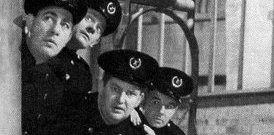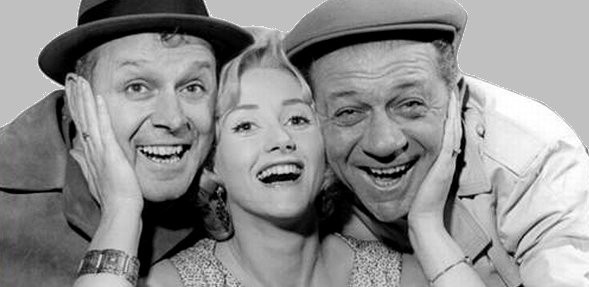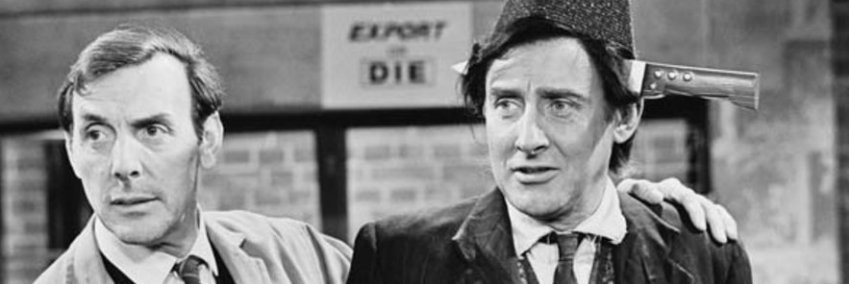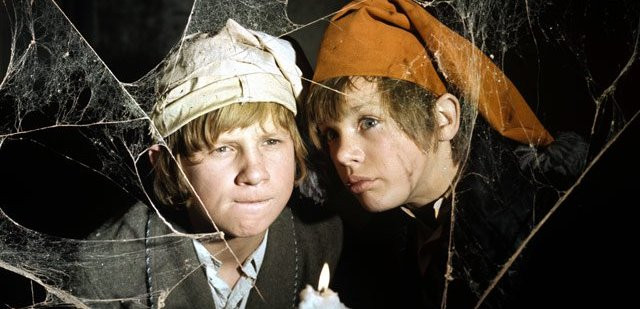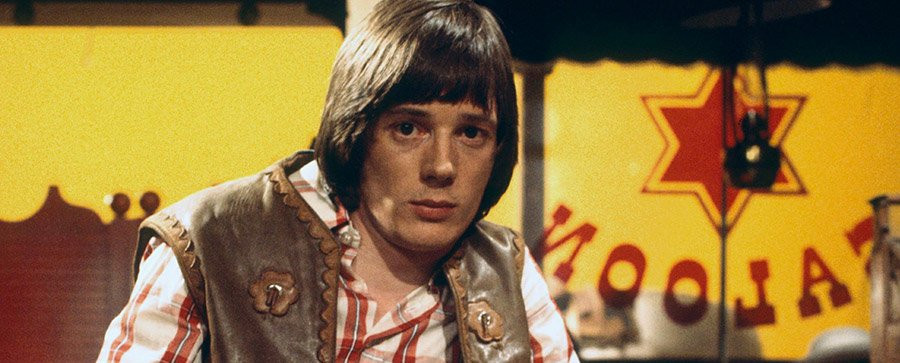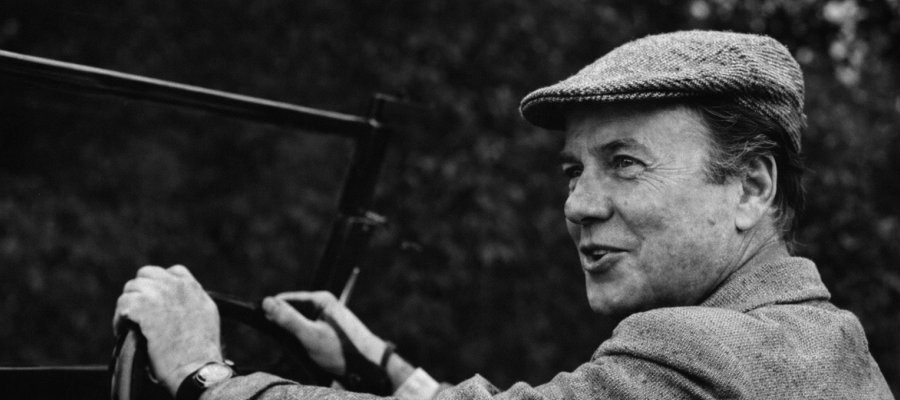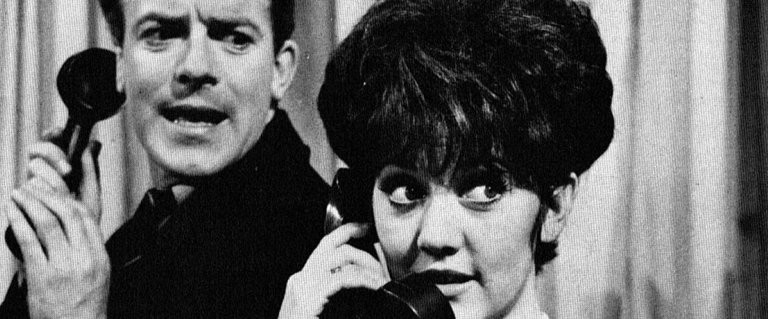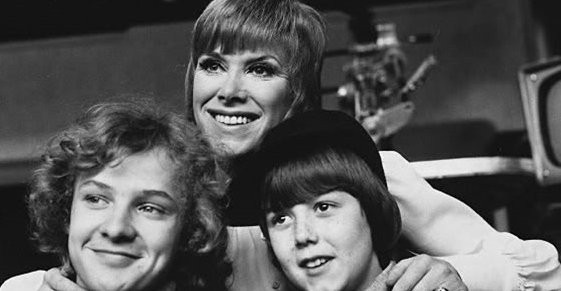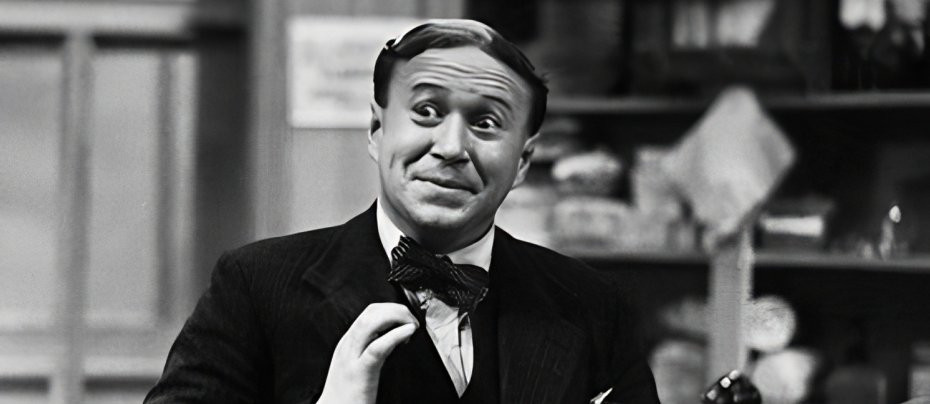
Pinwright's Progress
1946 - United KingdomRecognised as the first TV Sitcom (preceding the 15-minute US series Mary Kay and Johnny by one year), Pinwright's Progress was first transmitted on the BBC on 29 November 1946 and according to journalist James Graham "began a long tradition, that great laughs can come from placing recognisable archetypes alongside the Great British anxieties: social humiliation and reputational damage."
The star of the series was James Hayter the owner of Macgillygally's, that boasted to be the smallest multiple store in the world, and storylines revolved around his pretty daughter and a hated rival. His difficulties are increased by his staff's efforts to be helpful. They include Ralph (Leonard Sharp), a deaf octogenarian messenger boy and outrageous sales assistant Mrs Sigsbee (Doris Palmer), who appears to be an early version of Are You Being Served? character Mrs Slocombe, although one can only suspect that her antics were relatively tame by today's standards and there certainly wouldn't have been any jokes about her pussy.
James Hayter was born in India on 23 April 1907 and started on the stage in 1925. He spent two years touring provinces, followed by nine years' repertory, finishing at Birmingham Repertory Theatre and then went on to the West End and Films. His first television appearance was in 1937 but his career was interrupted by World War II, during which he served in the Royal Armoured Corps. He went on to be a familiar TV face for a further three decades, notably as Mr Pickwick in Pickwick Papers, The Forsyte Saga, and The Onedin Line. He also appeared in the aforementioned Are You Being Served? as Mr Percival Tebbs, his last TV role, thereby taking his career full circle. But he was mostly famous for his voice, especially as the original narrator of the original UK television advertisements in which he told viewers that "Mr Kipling makes exceedingly good cakes."
Because Pinwright's Progress was broadcast live and no recording are believed to have been made it is difficult to assess Pinwright's Progress - progress. There is very little known about the plotlines for each 30-minute episode, which was broadcast every two weeks, alternating with Kaleidoscope, a popular magazine show, apart from two episodes recorded on the BBC's Genome website:
13 December 1946: Christmas is coming and so, not to be beaten by his hated rival, the owner of Macgillygally's Stores, Mr. Pinwright prepares his Christmas Bazaar. There is trouble though, partly occasioned by the sudden appearance of three robed and bearded Father Christmases-one of whom is a fugitive from the law. Mrs. Sigsbee however lends tone to the proceedings by appearing in costume as the Fairy Queen and all ends well-or does it?
27 December, 1946: Mr. Pinwright intends to lure post-Christmas shoppers by a handsome gift to the store's fiftieth customer - cigars or nylons, cash customers only considered. In addition he opens a brand new snack bar but some pills palmed off on him by that cunning salesman throw all his plans into confusion.
Of the ten episodes broadcast up until May 1947 titles included Cash Crisis (episode 4), Fashions and Pashuns (5), Strained Relations (6), The Gipsy's Warning (7), Gone to Seed (8), Radio Activity (9) and Staggered Holidays (10). The series was written by Rodney Hobson and edited by Ted Kavanagh, the writer of the immensely popular BBC radio show It's That Man Again (ITMA) comedy series which ran for a decade from 1939. The producer was John Glyn-Jones.
Seen this show? How do you rate it?
Seen this show? How do you rate it?
Published on January 19th, 2019. Written by Marc Saul (September 2016) for Television Heaven.


